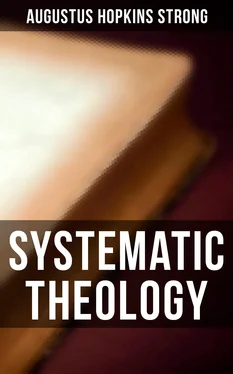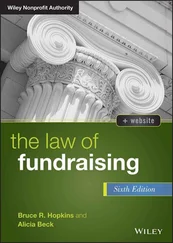8. Portions of the Scripture books written by others than the persons to whom they are ascribed.
The objection rests upon a misunderstanding of the nature and object of inspiration. It may be removed by considering that
(a) In the case of books made up from preëxisting documents, inspiration simply preserved the compilers of them from selecting inadequate or improper material. The fact of such compilation does not impugn their value as records of a divine revelation, since these books supplement each other's deficiencies and together are sufficient for man's religious needs.
Luke distinctly informs us that he secured the materials for his gospel from the reports of others who were eye-witnesses of the events he recorded ( Luke 1:1–4 ). The book of Genesis bears marks of having incorporated documents of earlier times. The account of creation which begins with Gen. 2:4 is evidently written by a different hand from that which penned 1:1–31 and 2:1–3 . Instances of the same sort may be found in the books of Chronicles. In like manner, Marshall's Life of Washington incorporates documents by other writers. By thus incorporating them, Marshall vouches for their truth. See Bible Com., 1:2, 22.
Dorner, Hist. Prot. Theology, 1:243—“Luther ascribes to faith critical authority with reference to the Canon. He denies the canonicity of James, without regarding it as spurious. So of Hebrews and Revelation, though later, in 1545, he passed a more favorable judgment upon the latter. He even says of a proof adduced by Paul in Galatians that it is too weak to hold. He allows that in external matters not only Stephen but even the sacred authors contain inaccuracies. The authority of the O. T. does not seem to him invalidated by the admission that several of its writings have passed through revising hands. What would it matter, he asks, if Moses did not write the Pentateuch? The prophets studied Moses and one another. If they built in much wood, hay and stubble along with the rest, still the foundation abides; the fire of the great day shall consume the former; for in this manner do we treat the writings of Augustine and others. Kings is far more to be believed than Chronicles. Ecclesiastes is forged and cannot come from Solomon. Esther is not canonical. The church may have erred in adopting a book into the Canon. Faith first requires proof. Hence he ejects the Apocryphal books of the O. T. from the Canon. So some parts of the N. T. receive only a secondary, deuterocanonical position. There is a difference between the word of God and the holy Scriptures, not merely in reference to the form, but also in reference to the subject matter.”
H. P. Smith, Bib. Scholarship and Inspiration, 94—“The Editor of the Minor Prophets united in one roll the prophetic fragments which were in circulation in his time. Finding a fragment without an author's name he inserted it in the series. It would not have been distinguished from the work of the author immediately preceding. So Zech. 9:1–4 came to go under the name of Zechariah, and Is. 40–66 under the name of Isaiah. Reuss called these ‘anatomical studies.’ ” On the authorship of the book of Daniel, see W. C. Wilkinson, in Homiletical Review, March, 1902:208, and Oct. 1902:305; on Paul, see Hom. Rev., June, 1902:501; on 110th Psalm, Hom. Rev., April, 1902:309.
(b) In the case of additions to Scripture books by later writers, it is reasonable to suppose that the additions, as well as the originals, were made by inspiration, and no essential truth is sacrificed by allowing the whole to go under the name of the chief author.
Mark 16:9–20 appears to have been added by a later hand (see English Revised Version). The Eng. Rev. Vers. also brackets or segregates a part of verse 3 and the whole of verse 4 in John 5 (the moving of the water by the angel), and the whole passage John 7:53–8:11 (the woman taken in adultery). Westcott and Hort regard the latter passage as an interpolation, probably “Western” in its origin (so also Mark 16:9–20 ). Others regard it as authentic, though not written by John. The closing chapter of Deuteronomy was apparently added after Moses' death—perhaps by Joshua. If criticism should prove other portions of the Pentateuch to have been composed after Moses' time, the inspiration of the Pentateuch would not be invalidated, so long as Moses was its chief author or even the original source and founder of its legislation ( John 5:46—“he wrote of me” ). Gore, in Lux Mundi, 355—“Deuteronomy may be a republication of the law, in the spirit and power of Moses, and put dramatically into his mouth.”
At a spot near the Pool of Siloam, Manasseh is said to have ordered that Isaiah should be sawn asunder with a wooden saw. The prophet is again sawn asunder by the recent criticism. But his prophecy opens ( Is. 1:1 ) with the statement that it was composed during a period which covered the reigns of four kings—Uzziah, Jotham, Ahaz and Hezekiah—nearly forty years. In so long a time the style of a writer greatly changes. Chapters 40–66 may have been written in Isaiah's later age, after he had retired from public life. Compare the change in the style of Zechariah, John and Paul, with that in Thomas Carlyle and George William Curtis. On Isaiah, see Smyth, Prophecy a Preparation for Christ; Bib. Sac., Apr. 1881:230–253; also July, 1881; Stanley, Jewish Ch., 2:646, 647; Nägelsbach, Int. to Lange's Isaiah.
For the view that there were two Isaiahs, see George Adam Smith, Com. on Isaiah, 2:1–25: Isaiah flourished BC 740–700. The last 27 chapters deal with the captivity (598–538) and with Cyrus (550), whom they name. The book is not one continuous prophecy, but a number of separate orations. Some of these claim to be Isaiah's own, and have titles, such as “The vision of Isaiah the son of Amos” (1:1) ; “The word that Isaiah the son of Amos saw” (2:1) . But such titles describe only the individual prophecies they head. Other portions of the book, on other subjects and in different styles, have no titles at all. Chapters 40–66 do not claim to be his. There are nine citations in the N. T. from the disputed chapters, but none by our Lord. None of these citations were given in answer to the question: Did Isaiah write chapters 44–66 ? Isaiah's name is mentioned only for the sake of reference. Chapters 44–66 set forth the exile and captivity as already having taken place. Israel is addressed as ready for deliverance. Cyrus is named as deliverer. There is no grammar of the future like Jeremiah's. Cyrus is pointed out as proof that former prophecies of deliverance are at last coming to pass. He is not presented as a prediction, but as a proof that prediction is being fulfilled. The prophet could not have referred the heathen to Cyrus as proof that prophecy had been fulfilled, had he not been visible to them in all his weight of war. Babylon has still to fall before the exiles can go free. But chapters 40–66 speak of the coming of Cyrus as past, and of the fall of Babylon as yet to come. Why not use the prophetic perfect of both, if both were yet future? Local color, language and thought are all consistent with exilic authorship. All suits the exile, but all is foreign to the subjects and methods of Isaiah, for example, the use of the terms righteous and righteousness . Calvin admits exilic authorship (on Is. 55:3 ). The passage 56:9–57 , however, is an exception and is preëxilic. 40–48 are certainly by one hand, and may be dated 555–538. 2nd Isaiah is not a unity, but consists of a number of pieces written before, during, and after the exile, to comfort the people of God.
Читать дальше












